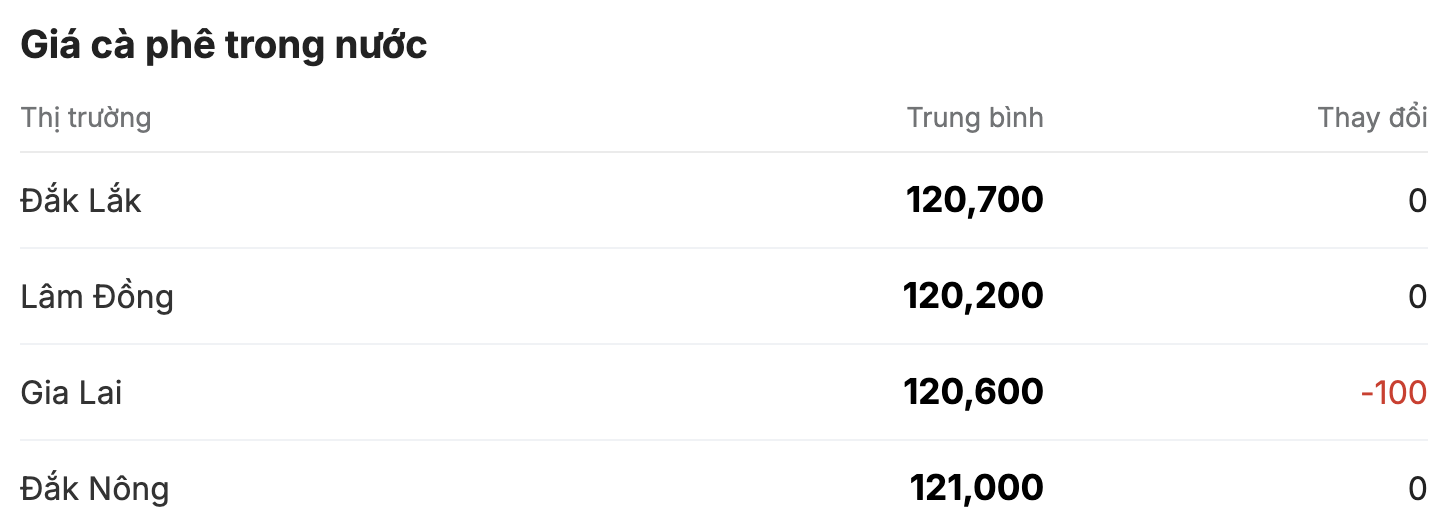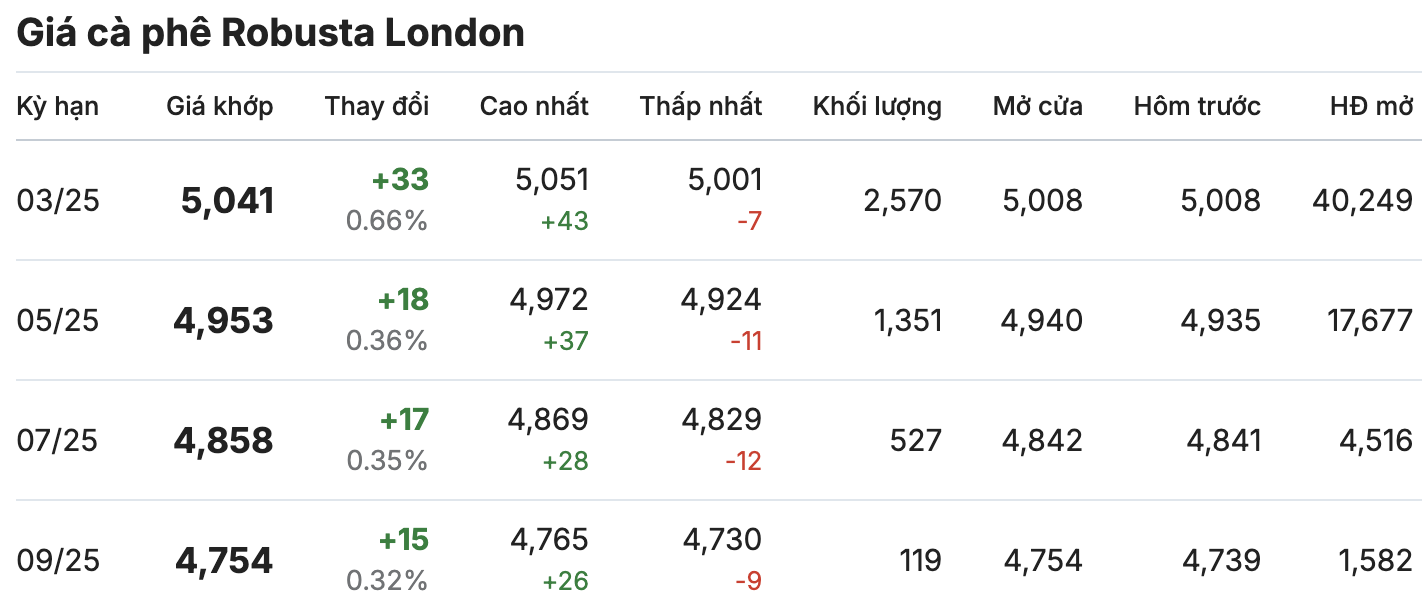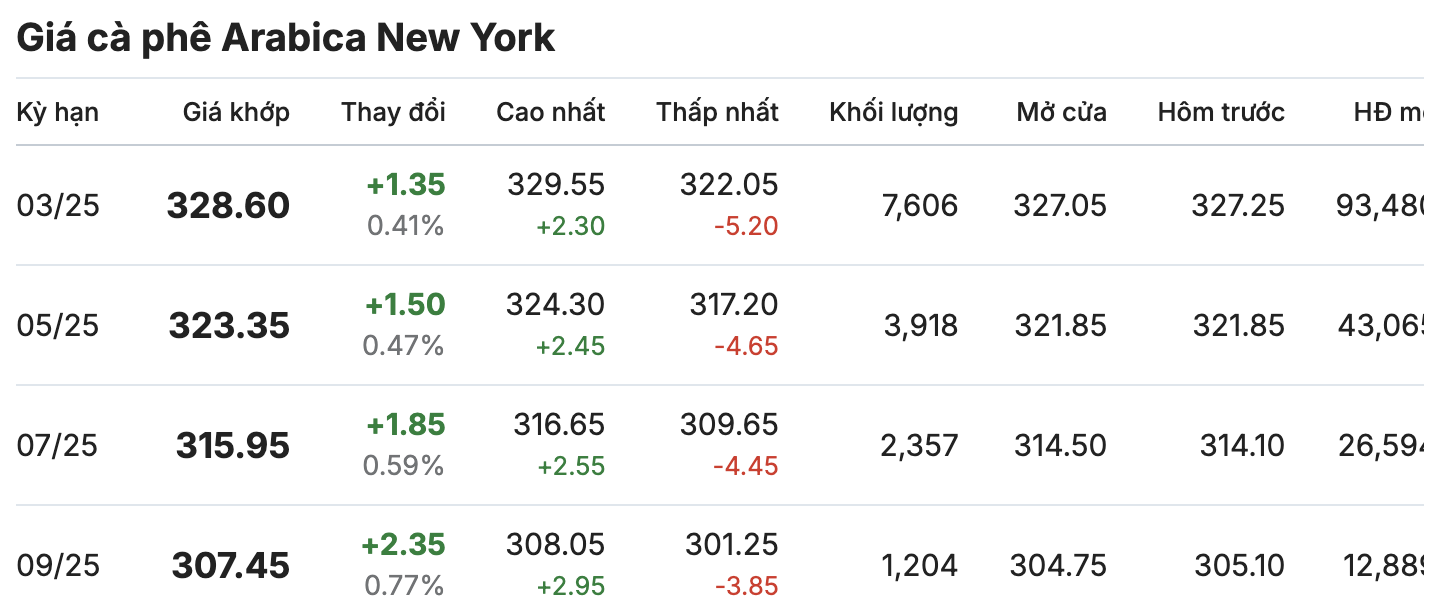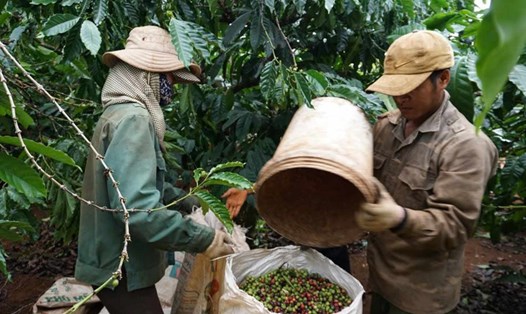As of 11:30 a.m. today (December 25), the domestic coffee market remained unchanged compared to yesterday's trading level, currently fluctuating between 120,200 - 121,000 VND/kg. The average coffee purchase price in the Central Highlands provinces today is 120,800 VND/kg.
Lam Dong is still the province with the lowest coffee purchasing price in the Central Highlands, with a difference of about 600 VND/kg compared to the average price. Compared to the closing price of last weekend, the coffee price in this region remained unchanged at 120,200 VND/kg.
In the same afternoon, Dak Lak province today announced that the coffee purchase price fluctuated around 120,700 VND/kg, with a tendency to remain unchanged compared to the same time yesterday (December 24).
Notably, only Gia Lai province had a price reversal today, down slightly by 100 VND/kg, listed at 120,600 VND/kg.
The price of coffee brought to the market in Dak Nong province has not changed much, remaining stable at 121,000 VND/kg.

On the London and New York exchanges, the coffee market increased simultaneously compared to the domestic market. On the London Robusta coffee exchange, coffee prices were covered in green, gradually moving away from the 5,000 USD/ton mark. The contract for delivery in March 2025 increased by 0.66% (equivalent to 33 USD/ton), standing at 5,041 USD/ton. The contract for delivery in May 2025 increased by 0.36% (equivalent to 18 USD/ton), trading at 4,953 USD/ton.

Similarly, the New York Arabica coffee market continued its upward trend. The March 2025 and May 2025 futures settled at 328.60 cents/lb and 323.35 cents/lb, up 0.41% and 0.47%, respectively.

Arabica coffee prices have surged 70% in 2024 to their highest level in more than 40 years. This is the preferred bean in the premium coffee line, this strong volatility creates not only opportunities but also many challenges for traders and investors in the global coffee market.
The sudden price increase will put huge financial pressure on traders holding millions of bags of coffee in warehouses or in transit, with small businesses or those with limited financial capacity facing a serious cash shortage.
The increase in Arabica coffee prices is mainly due to unfavorable weather conditions in major producing countries such as Brazil, Vietnam, and Guatemala, which have significantly reduced production. At the same time, increased demand in Europe and the US has pushed prices to record levels.
However, experts predict that coffee prices may adjust in the short term, but will not fall deeply due to the imbalance between supply and demand.











